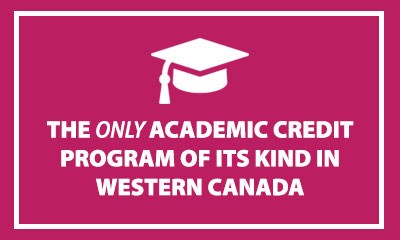Program description
The Professional Specialization Certificate in Visitor and Community Engagement (PSC in VCE) is the first of its kind in Western Canada with a focus on the public role of museums. Developing knowledge and skills in the areas of visitor experience, public programming and building community relationships, the PSC in VCE supports museum and cultural sector workers to effectively engage with Indigenous and culturally diverse communities, reach underserved audiences, and be responsive to the needs of their public(s).
Offered as a post-degree program, the PSC is a four-course credential that includes three core courses and one elective. The program can be completed fully online, or students have the option to complete their elective course on-campus as a six-day intensive course. Program participants will be part of a professional community of learners, drawing on the professional insights and experiences of not only their course instructors, but their fellow course participants as well.
| PROGRAM FEATURE | BENEFIT |
| Focused programming: Four courses: three core courses and one elective, which may be completed within a year | Receive specialized training for new positions in the industry (such as Curator of Engagement or Director of Visitor Experience) |
| Flexibility: Can be completed entirely online; some face-to-face, short immersion elective course options also available | Continue working while you expand on your knowledge in the area of public programming and audience engagement |
| Professional networking: Study with other professionals from across Canada and beyond; led by instructors who are experts in their field | Learn from other real-world examples and build relationships with colleagues across the country |
| Professionally recognized credential: From a respected Canadian institution | Earn a professional certificate that sets you apart in a growing area of need in the cultural sector |
Program partners
Faculty of Fine Arts, Department of Art History and Visual Studies
As well as various community partners and organizations.








